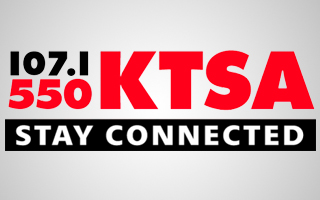Judge blocks vaccine mandate for health care workers in 10 states

U.S. District Judge Matthew Schelp of the federal district court in St. Louis said in his 32-page order that the group of 10 states challenging the rule were likely to succeed on the merits of their case, as the Center for Medicare and Medicaid Services (CMS) needed clear authorization from Congress to implement its vaccine requirement.
Schelp’s order prevents the Biden administration from implementing and enforcing its rule while litigation continues. The 10 states affected are Alaska, Arkansas, Iowa, Kansas, Missouri, Nebraska, New Hampshire, North Dakota, South Dakota and Wyoming.
“[E]ven if Congress’s statutory language was susceptible to CMS’s exceedingly broad reading — which it is most likely not — Congress did not clearly authorize CMS to enact … this politically and economically vast, federalism-altering, and boundary-pushing mandate,” he wrote in his decision.
The new rule from the Centers for Medicare and Medicaid Services published in November requires health care workers at 15 categories of facilities that receive funding through Medicare and Medicaid to be fully vaccinated against COVID-19. The measure requires employees to have at least their first dose of the vaccine by December 6, and they must be fully vaccinated by January 4. Those covered by the rule do not have a testing option in lieu of vaccination.
Led by Missouri Attorney General Eric Schmitt and Nebraska Attorney General Doug Peterson, the 10 states sued the Biden administration over the vaccine rule for health care workers earlier this month, claiming it violates the Constitution and federal law. The officials warned the requirement will compound shortages of health care workers, especially in rural areas, and threatens to put millions out of work.
Schelp wrote in his order that the economic cost of the vaccine requirement is “overwhelming” and said the “political significance of a mandatory coronavirus vaccine is hard to understate, especially when forced by the heavy hand of the federal government.”
“Truly, the impact of this mandate reaches far beyond COVID,” he said. “CMS seeks to overtake an area of traditional state authority by imposing an unprecedented demand to federally dictate the private medical decisions of millions of Americans. Such action challenges traditional notions of federalism.”
Schelp also said the mandate is likely an unlawful promulgation of regulations under federal law and wrote that the Centers for Medicare and Medicaid Services’ delay in requiring vaccination undermines its claim that COVID-19 is an emergency that justifies bypassing rulemaking requirements.
“COVID cannot be a compelling justification forever, and CMS’s evidence shows COVID no longer poses the dire emergency it once did,” he said. “Notably, today, there are three widely distributed vaccines. Additionally, there are several therapeutics and treatments, and as CMS states, more are on the horizon. Thus, CMS’s purported ’emergency’ — one that the entire globe has now endured for nearly two years, and to which CMS itself demonstrated ease in responding to — is unavailing.”
President Biden announced the vaccine requirement for health care workers as part of his administration’s efforts to boost vaccination rates to combat a spike in COVID-19 infections driven by the Delta variant. The administration estimated the rule would impact 2.4 million workers who had not yet gotten vaccinated.
Mr. Biden’s broader vaccine requirements have been a target of Republican-led states, who have so far seen early success in challenging his rules. A federal appeals court in New Orleans temporarily halted a vaccine requirement for workers at companies with more than 100 employees earlier this month.
You Might Also Like



